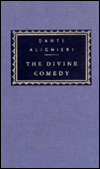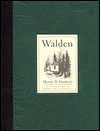
 |
“The true University of these days is a Collection of Books.” — Thomas Carlyle (1795-1881), The Hero as a Man of Letters |
 |
| My Favorite Books: old friends to treasure for a lifetime... | |
.jpg) |
Talks with Ramana Maharshi (1955), Ramanasramam, ISBN: 0904387267—
Ramana Maharshi is India's foremost sage of the 20th century. Introduced to the West by Paul Brunton in
A Search in Secret India (1934),
it inspired Somerset Maugham to visit Ramana (1938) in India and write
The Razor's Edge. During four years (1935 to 1939),
Munagala Venkataramiah recorded painstakingly the conversations between
Bhagavan Sri Ramana Maharshi and his devotees. Whether ignorant or erudite, a simple peasant or royalty, they traveled from the far
corners of the earth to place their doubts before him or just to sit in his divine presence. His infinite
compassion and unique insight ensured that none left his ashram empty handed. Their questions covered
every aspect of the spiritual search and every problem troubling the human mind: Maharshi s answers
gently led the questioner to the correct solution, each question answered according to the questioner's
own level of spritual development. Selected Quotes from Talks. (Free PDF e-Book)
Avg. Review (15):  |
.jpg) |
Paul Brunton, Wisdom of the Overself (1943), E.P. Dutton, ISBN: 1446514013—
Chapters on Meaning of Mentalism, Birth of the Universe, Studies in Dreams, Metaphysics of Sleep,
Secret of the I, Scorpion of Death, Immortal Overself, Shadows of Evil & Suffering, World Mind,
Unveiling of Reality, Initiation into Mystical Experience, Yoga of Discerning Mind,
Mystical Phenomena of Meditation, Some Fruits of Philosophy.
Anthony Damiani used this book
as his text on metaphysics when I attended his Wednesday seminars at Cornell in his bookshop
(1968-1970). When I met PB for the first time in Montreux, Switzerland,
he autographed this book for me "May Peace Be with You" (August 31, 1972). I've been blessed
ever since living his philosophical teachings.
Chapters Online
Avg. Review (17):  |
 |
Johann Wolfgang Von Goethe, Italian Journey 1786-1788 (reissue 1992), W. H. Auden & Elizabeth Mayer (tr.),
Penguin USA, ISBN: 0140442332— A few days after his 37th birthday, Goethe set out on a journey to Italy
in 1786. During the trip, he kept a journal and wrote many letters that he shaped into the Italian Journey.
He visited Venice, Florence, Rome, Naples, and Sicily. We now have access to the art & sculpture Goethe saw,
people he met, nature he studied so avidly— and, most of all, access to the mind of a genius, released
to new insight by his contact with a different culture. The translators have captured all the vitality and humor of
Goethe's style, bringing new life to the spirit and genius of the writer. But it is the master himself who provides
the timeless picture of Italy which will engage the attention of even the most recent traveler. This book has 42 illustrations
with many landscape drawings by Goethe. I enjoyed Goethe's climb of Mount Vesuvius, covering his mouth from the dense smoke,
walking on hot lava. There are so many moments of epiphany that he shares with us, such as his
inspiration by Michelangelo's Sistine Ceiling, that our mind is lifted
to a heightened awareness of beauty and bliss.
Avg. Review (25): 
|
.jpg) |
Jean Jacques Rousseau, Reveries of the Solitary Walker (reprint 1980), Penguin USA, ISBN: 0140443630—
On Sept. 1, 1979, I watched a most beautiful sunset with
Paul Brunton
by the lakeside of Vevey. PB told me that Rousseau sat at the same spot marvelling at the grandeur of nature.
“But over 200 years ago, this place was all wilderness,” said PB “so it was ideal for meditation.”
When I asked how did he know, PB replied “It's all in Rousseau's Peregrination of a Solitary Dreamer.”
This book is composed of ten meditations written in the two years before Rousseau's death in 1778 at age 64.
Rousseau experienced tranquillity in his meditations, talking about Delphi's “Know Thyself” and inner
enlightenment— “My meditations are never more delighful than when I can forget myself. I feel transports
of joy and inexpressible raptures in becoming fused as it were with the great system of beings and identifying myself
with the whole of nature.” Spoken like Zen Master Dogen (13th century) who advised us to forget the ego-self
in order to experience the Cosmic Self. This edition includes an introduction, notes & a brief chronology.
Avg. Review (7): 
|
 |
Dante Alighieri, Allen Mandelbaum (Translator), The Divine Comedy: Inferno, Purgatorio, Paradiso (Hardcover, 1995),
Knopf, ISBN: 0679433139—
This splendid verse translation by Allen Mandelbaum provides an entirely fresh experience of Dante's great poem
of penance, hope, and transcendence. Professor John Freccero used this edition when I took his Stanford course on
Dante's
Divine Comedy (2001). Dante ascends Mount Purgatory toward Earthly Paradise and his beloved Beatrice. My favorite book is Paradiso where Dante is no longer guided by his poet-mentor Virgil, but by Beatrice, the Eternal Feminine, who leads him above to the starry realms. I'm amazed at Dante's visionary acumen as Beatrice talks about universal gravitation almost four centuries before Newton. Freccero referred me to an American Journal of Physics article that reconciled Dante's description of the heavenly spheres' momentum in terms of 4th dimensional Einsteinian relativity. Mandelbaum has prepared extensive notes and commentary especially for this edition. Dante's Divine Comedy is worth the study of a lifetime. It's a crystalline snowflake with reflective symmetry— pure poetry from a pure heart. Avg. Review (2305): 
|
 |
Antoine de Saint-Exupéry, The Little Prince (1943), Harcourt Brace, ISBN: 0152465030—
Saint-Exupéry's
The Little Prince is one of the most loved books by both children and adults.
A fable in the most classic sense, this wise story offers layer upon layer to be peeled away with each reading.
The narrator runs across the little prince while repairing his airplane in the desert. The elfin prince asks
the narrator to draw a picture of a sheep, then proceeds to tell him about his beloved rose and the volcanoes on
his asteroid home. In his galactic travels, he meets a variety of archetypal characters— a king, a tippler,
and a geographer, all of whom possess particular absurdities seen all too clearly through the eyes of the little
prince. The bewildered prince visits Earth, which appears just as strange and alien as the other planets, until
he meets a small fox who shows him what he has been looking for. I recommend the hardcover edition which has the author's
ink colored drawings which are simply delightful!
(Online text)
Avg. Review (3903):

|
.jpg) |
Lao Tzu, Tao Te Ching (1964),
Penguin Classics; ISBN: 014044131X— Lao Tzu (604 BC-517 BC) in Chinese means literally "old-young". He was father of Taoism, whose symbol of Yin-Yang seems to personify him as embracing and transcending the opposites. When Lao Tzu left for the hills, the Gatekeeper requested him to write some words of wisdom for his children. The 81 verses of Tao Te Ching was what Lao Tzu left behind. This text is the most translated book after the Bible. My first copy of Tao Te Ching was translated by D. C. Lau in the Penguin Classics edition (1967). The smiling countenance of Lao Tzu on the cover was a detail from a Chinese silk painting in the British Museum. It became my favorite book, and I carried it around with me often. For Robert Pinsky's Stanford Workshop, I selected Lao Tzu as one of my favorite poets. Avg. Review (2229):  . .
|
.gif) |
Juan Mascaro (translator), Upanishads (1965),
Viking Press; ISBN: 0140441638— The Sanskrit word Upanishads means “to sit under”— inferring that disciples are sitting at the feet of a sage learning spiritual wisdom. This book of twelve Upanishads (800-400 BC), has an illuminating introduction by Juan Mascaro, whose translation is pure poetry. This classic reveals the paradoxical variety & unity, the great questions & simple answers, the spiritual wisdom and romantic imagination of these ‘Himalayas of the Soul’. In a letter to Mascaro, the 1913 Nobel Poet Laureate, Tagore wrote: “Your translation has caught from those great words the inner voice that goes beyond the boundaries of words.” One of my favorite quotes is from Isa Upanishad:“ Om. O my soul, remember past strivings, remember!” This invocation reminds us that we've been here before, and if we tap into our inner self with its vast storehouse of memories, we'll know our Cosmic Self that's infinite and eternal. Avg. Review (95):  . .
|

|
Richard Maurice Bucke, Cosmic Consciousness (1991), Dutton, ISBN: 0140193375 I remember the excitement discovering this book in the Cornell Library stacks as if I've found gold. Bucke's classic enlightenment book was published in 1901 and influenced William James to devote an entire chapter in his The Varieties of Religious Experience (1904). I used Bucke's book as a road map and began my spiritual quest. The taverns I would stop by on this journey were Balzac, Blake, Buddha, Christ, Dante, Lao Tzu, Pascal, Plato, Whitman, Wordsworth— spiritual mentors who offered a drink of the infinite and eternal. Suddenly I realized that our goal in life is enlightenment— not via the slow process of material evolution in horizontal time, but by spiritual revolution— a vertical mind ascent to eternity and cosmic consciousness. I thank Richard Bucke for inspiring me to be more creative in doing biochemical research on proteins as well as writing and teaching poetry. Avg. Review (117): 
|
.jpg) |
Joseph Campbell, Power of Myth, Illustrated Ed. (1988), Doubleday, ISBN: 0385247745—
Based on a six-part PBS
television series hosted by Bill Moyers, this classic is especially compelling because
of its engaging question-and-answer format, creating an easy, conversational approach to complicated and esoteric
topics. Joseph Campbell, the world's foremost authority on mythology, and Bill Moyers, one of most distinguished
journalists, offer a brilliant combination of wisdom and wit. Campbell explains to Moyers how myths are our
ties to the past, helping us understand ourselves & our world. Topics from modern marriage to virgin
births, Jesus to John Lennon, and illustrated with over 100 fascinating photographs.
Most impressive is Campbell's encyclopedic knowledge of myths, demonstrated in his ability to recall the details
and archetypes of almost any story, from any point and history, and translate it into a lesson for spiritual living
in the here and now. Avg. Review (551): 
|
 |
Henry David Thoreau, Walter Harding (Editor), Walden: An Annotated Edition (1995),
Houghton Mifflin, ISBN: 0395720427—
On July 4, 1845, eight days before his 28th birthday, Thoreau moved into the cabin he had built
on the shore of Walden Pond— thus beginning the most famous experiment in simple living in American
history. On the 150th anniversary of that event, Houghton Mifflin has published a new edition of Walden, annotated by distinguished Thoreau scholar Walter Harding and illustrated with Thoreau's own drawings. There is much that is new in this edition, and those reading it for the first time will discover why it has changed the lives of generations of readers (Mahatma Gandhi and Martin Luther King). I have so many favorite quotes from this book, especially from Chapter XI: Higher Laws— “Man flows at once to God when the channel of purity is open.” From Harding's copious footnotes, we learn that Thoreau drank from many pure minds in the Orient— Lao Tzu, Confucius, Mencius, and the Hindu rishis. When we read Walden that purity of light flows through us. Avg. Review (1880): 
|
| © Peter Y. Chou,
WisdomPortal.com P.O. Box 390707, Mountain View, CA 94039 email:  (11-30-2018) (11-30-2018) |
|